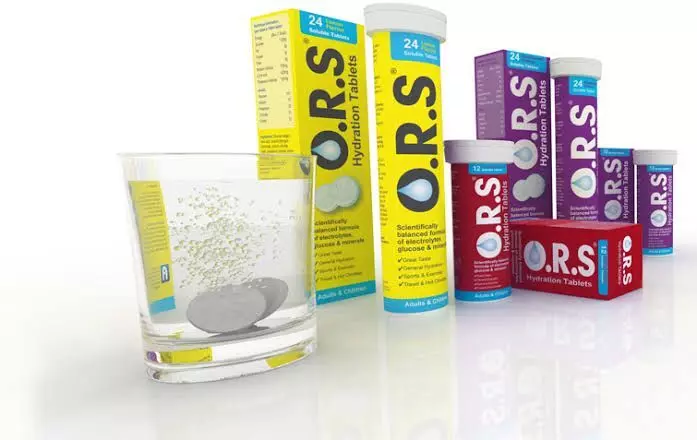Beat Dehydration: ORS offers relief, emphasis on effective summer hydration tactics
Oral Rehydration Solution (ORS) stands out as among the better solutions to replenish important electrolytes
By Anoushka Caroline Williams
Hyderabad: As summer unfurls it is a challenge of staying hydrated in the face of constant dehydration, especially for those with diabetes. Understanding the importance of maintaining electrolyte balance is crucial. Oral Rehydration Solution (ORS) stands out as among the better solutions to replenish important electrolytes. However, can it be safely embraced by individuals managing diabetes?
Diabetes and ORS compatibility
Addressing this concern, Dr Deepa Agarwal, a Hyderabad nutritionist at Nutriclinic, emphasised the safety of ORS consumption within recommended limits for diabetic individuals.
Supported by research from the National Institute of Health, Agarwal asserted that ORS formulations containing glucose and rice powder can be administered safely to diabetic patients experiencing acute diarrhoea and dehydration.
“However, prudence dictates consulting healthcare providers prior to ORS intake to pre-empt any potential complications. Regular monitoring of blood sugar levels is also advised during ORS consumption to ensure optimal management of diabetes,” Dr Deepa said.
Crafting effective hydration strategies
For individuals with diabetes, maintaining electrolyte equilibrium assumes critical significance, given its susceptibility to imbalance, particularly in Type 2 Diabetes Mellitus. Agarwal underscored the peril of dehydration-induced complications like diabetic ketoacidosis, underscoring the imperative of adopting robust hydration practices.
Prioritising adequate water intake: A cornerstone of hydration management is the conscientious consumption of water. Agarwal recommended a daily water intake of approximately 1.6 litres for women and at least 2 litres for men, with adjustments made for those engaging in rigorous physical activity or exposed to sweltering conditions.
Exploring alternative electrolyte sources: Complementing water consumption are sugar-free electrolyte alternatives tailored for diabetic individuals. These alternatives offer a viable means of replenishing electrolytes without disrupting blood sugar levels, thereby facilitating effective hydration.
Infusing water with natural enhancements: To augment hydration efforts and fortify electrolyte balance, Agarwal advocated for the addition of natural flavourings to water. Fresh lemon or lime juice emerges as a refreshing option, imbuing water with taste while furnishing essential electrolytes. Additionally, individuals contending with chronic electrolyte deficiencies may find solace in doctor-endorsed electrolyte supplements.
In navigating the labyrinth of hydration management, individuals with diabetes are advised to tread cautiously, seeking guidance from healthcare providers to ascertain the suitability of interventions like ORS. By adhering to expert counsel, embracing a regimen of adequate water intake, and harnessing natural enhancements, individuals with diabetes can navigate the summer months with confidence, safeguarding their health and well-being.